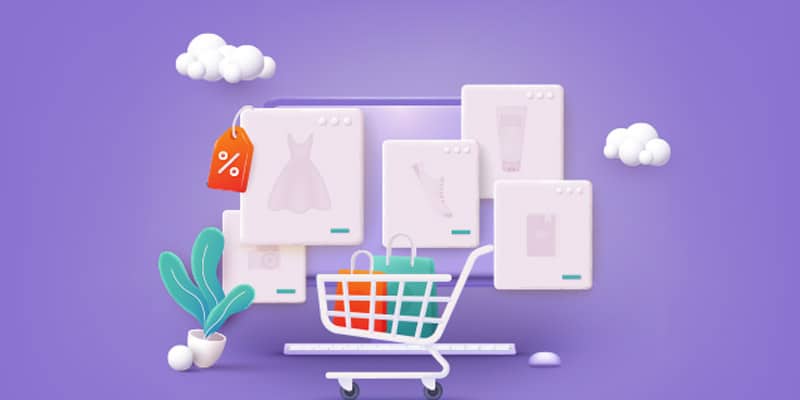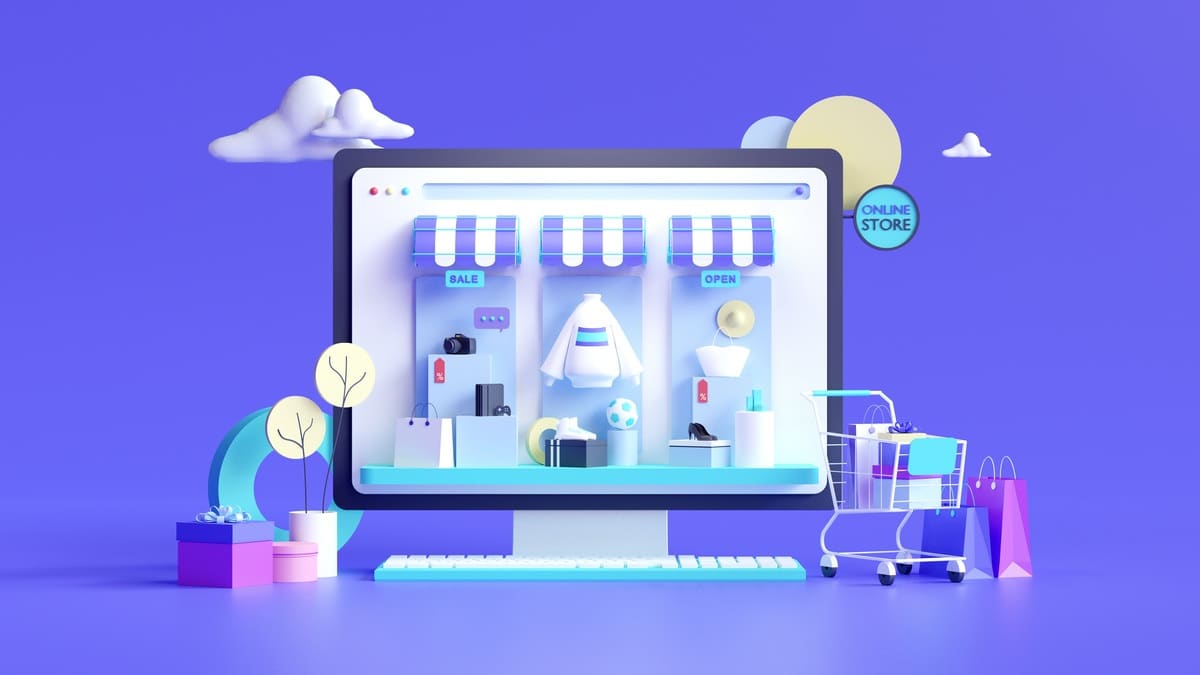Introduction to the Future of Ecommerce
The landscape of online shopping is rapidly evolving, reshaping the way consumers engage with brands and purchase products. As we look towards the future of ecommerce, it’s crucial to understand the emerging trends that are set to revolutionize the way businesses operate online. In this blog post, we delve into these trends, providing insights into what the future holds for eCommerce web development.
Ecommerce has grown exponentially over the past decade, driven by advancements in technology and changes in consumer behavior. The COVID-19 pandemic further accelerated this growth, as more consumers turned to online shopping amidst lockdowns and social distancing measures. As we move forward, the future of ecommerce is poised to be influenced by innovative technologies, changing consumer expectations, and new business models.
In this exploration, we will dissect the key trends that are shaping the eCommerce future, with a focus on how eCommerce development services are adapting to these changes. Whether you’re a business owner, a web developer, or simply an enthusiast of the digital world, this comprehensive look into e-commerce’s future trends will equip you with the knowledge to stay ahead in the evolving digital marketplace.
The Impact of AI and Machine Learning on the Future of Ecommerce
Personalization and Customer Experience Enhancement
Artificial Intelligence (AI) and Machine Learning (ML) are at the forefront of the future of ecommerce trends and innovations, transforming how online businesses interact with customers. AI-driven technologies enable a level of personalization previously unattainable, allowing for tailored shopping experiences that cater to individual preferences and behaviors.
This personalization extends beyond product recommendations. AI-powered chatbots and virtual assistants are providing customers with real-time assistance, improving customer service, and enhancing the overall shopping experience. As these technologies continue to evolve, they will play a crucial role in the shaping the future of ecommerce, setting new standards for customer engagement and satisfaction.
Streamlining Operations and Inventory Management
Another significant impact of AI and ML in the future of ecommerce lies in operational efficiency. Through predictive analytics, businesses can forecast demand, manage inventory more effectively, and optimize their supply chains. This not only reduces costs but also minimizes the risk of stockouts or overstocking, leading to a more efficient and responsive business model.
AI algorithms are also revolutionizing logistics, from warehouse automation to dynamic pricing strategies. These advancements are critical for eCommerce development services, as they provide the tools to build more robust and efficient eCommerce platforms.

The Rise of Mobile Commerce in Ecommerce Future
Enhancing Mobile User Experience
The shift towards mobile commerce is a defining element of the future of ecommerce. With the increasing prevalence of smartphones, consumers are favoring mobile devices for online shopping. This trend necessitates a focus on mobile-friendly web design, ensuring that eCommerce platforms are optimized for a seamless mobile experience.
This involves not just responsive design but also the integration of mobile-specific features like one-click ordering, mobile wallets, and voice search capabilities. As mobile commerce continues to grow, providing a superior mobile user experience will be essential for businesses to thrive in the eCommerce future.
Leveraging Social Commerce
Social commerce is another aspect of mobile commerce that’s gaining traction. Platforms like Instagram and Facebook are becoming shopping destinations, with features that allow users to purchase products directly through the app. This integration of social media and e-commerce presents a significant opportunity for businesses to reach consumers where they spend a considerable amount of their time.
For eCommerce development services, this means creating solutions that seamlessly integrate with social media platforms, providing a unified and engaging shopping experience across different channels.
Embracing Sustainable Practices in Ecommerce Development Services
Eco-friendly Packaging and Shipping
As environmental concerns become more prominent, the future of ecommerce is closely tied to sustainability. Consumers are increasingly seeking out brands that demonstrate a commitment to eco-friendly practices, including sustainable packaging and shipping options.
This trend is pushing eCommerce businesses to rethink their supply chains and logistics, opting for biodegradable packaging materials, carbon-neutral shipping methods, and local sourcing where possible. This shift not only appeals to environmentally conscious consumers but also helps businesses reduce their ecological footprint.
Sustainable Web Design
Sustainable web design is another aspect of eco-friendly eCommerce practices. This involves creating websites that are energy-efficient, with optimized images and server performance to reduce the digital carbon footprint. As we move towards a more sustainable future, these practices will become crucial for eCommerce development services, aligning with global efforts to combat climate change.
The Integration of Augmented Reality in Online Shopping
Enhancing Product Visualization
Augmented Reality (AR) is set to redefine the online shopping experience, offering customers a way to visualize products in their own environment before making a purchase. This technology is particularly useful for industries like furniture and fashion, where how a product looks and fits in real life is a major purchasing factor.
AR enables consumers to see how a sofa would look in their living room or how a dress would fit, all from the comfort of their homes. This level of interactivity not only enhances the customer experience but also reduces the likelihood of returns, a significant challenge in the e-commerce industry.
Interactive User Manuals and Tutorials
AR is also being used to create interactive user manuals and tutorials, providing customers with a more engaging and informative post-purchase experience. This application of AR in the future of ecommerce extends the customer journey beyond the point of sale, fostering brand loyalty and enhancing customer satisfaction.

Conclusion: Preparing for the Evolving Landscape of E-commerce
The future of ecommerce is marked by rapid advancements in technology and shifting consumer behaviors. From the integration of AI and AR to the emphasis on mobile commerce and sustainability, these trends are reshaping the way businesses approach online retail.
For eCommerce development services, staying ahead in this dynamic landscape requires an adaptive and innovative approach. By embracing these emerging trends, businesses can build robust, customer-centric eCommerce platforms that cater to the evolving needs of the modern consumer.
As we continue to witness the transformation of the e-commerce industry, one thing remains clear: the future of ecommerce is not just about selling products online but creating an immersive, efficient, and sustainable shopping experience that meets the demands of the digital age. By understanding and leveraging these trends, businesses can position themselves for success in the rapidly evolving world of eCommerce.
What is the future outlook for e-commerce?
The future outlook for e-commerce is promising with continued growth expected. The increasing popularity of online shopping, advancements in technology, and the convenience it offers contribute to its positive trajectory. E-commerce is likely to see further expansion, innovation, and integration with emerging technologies, such as artificial intelligence and virtual reality, enhancing user experiences and driving sales. The ongoing digital transformation and changing consumer behaviors indicate a bright future for e-commerce.
What is the future of e-commerce in 2030?
E-commerce is expected to continue growing rapidly in the future, with advancements in technology and changing consumer preferences driving this growth. By 2030, e-commerce is projected to become an even more integral part of our lives, with increased adoption across various industries and regions. The future of e-commerce will likely be characterized by innovations such as augmented reality (AR) and virtual reality (VR) shopping experiences, personalized product recommendations, seamless omnichannel integration, and enhanced logistics and delivery systems. The widespread use of artificial intelligence (AI) and machine learning (ML) is also anticipated to further enhance customer experiences and automate various aspects of the e-commerce process. Overall, e-commerce is poised to be a dominant force in retail and commerce, offering convenience, choice, and personalized experiences to consumers in the year 2030.
What is the next big thing in e-commerce?
Voice search and mobile shopping are the next big things in e-commerce.


